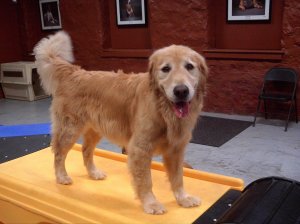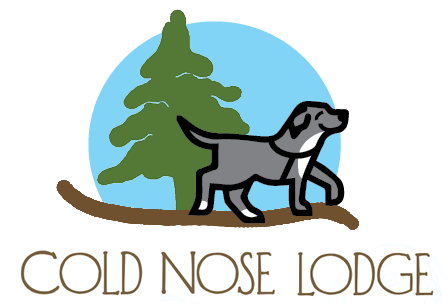Lessons learned from our experiences with dog colds
Running a dog daycare is in many ways similar to running a human daycare or elementary school. We try our best to treat all the dogs like they are part of our family. We encourage making friends, using good manners, and sharing with friends. Unfortunately for us and our human counterparts, that also means sharing germs. We have learned several lessons from our experiences with doggie colds:
 Dogs get sniffles, sneezes and coughs too. The germs causing these symptoms can be picked up anywhere…..the vet’s office, pet stores, parks, boarding and daycare facilities, dog events…..even your own front yard. Wherever the dogs go, germs may follow.
Dogs get sniffles, sneezes and coughs too. The germs causing these symptoms can be picked up anywhere…..the vet’s office, pet stores, parks, boarding and daycare facilities, dog events…..even your own front yard. Wherever the dogs go, germs may follow.
Dogs share germs with their friends when they play together, lick and groom each other, share water bowls and their favorite toys.
Dogs get colds too, just like humans. With a little extra TLC and rest, most colds will resolve within a matter of days.
 Most coughs and colds do not require a veterinary visit. Dogs are usually feeling better in a day or two.
Most coughs and colds do not require a veterinary visit. Dogs are usually feeling better in a day or two.
If your dog does seek medical attention, swabs and cultures can give a more definitive answer as to what germ is causing your pet’s illness.
Dogs that attend daycare on a regular basis tend to get sick less often. (Think about a child who may catch some colds in kindergarten, but rarely gets sick in later years of school.)
 Vaccinations can provide added protection against some common causes of illness, including upper respiratory infections.
Vaccinations can provide added protection against some common causes of illness, including upper respiratory infections.
A good, nutritious diet, daily exercise, current vaccinations, and regular socialization can help reduce the risk of infection for your dog.
Herbal supplements, like Herbsmith Support Immunity can help strengthen your dog’s immune response.
Many different strains of bacteria and viruses can cause upper respiratory infections in dogs. Dogs may be contagious before showing symptoms. Some dogs may be carriers, who never show symptoms, but are able to spread the illness to others.
If your dog shows signs of an upper respiratory infection, please keep him away from daycare, parks, and any other places where it may be spread to others. Although it is something most dogs recover from easily, we would rather they avoid the sniffles and sneezes and coughs in the first place.
Please call your veterinarian if you have any additional questions about canine upper respiratory illnesses.
-Submitted by Margie F. and Rayne R.
